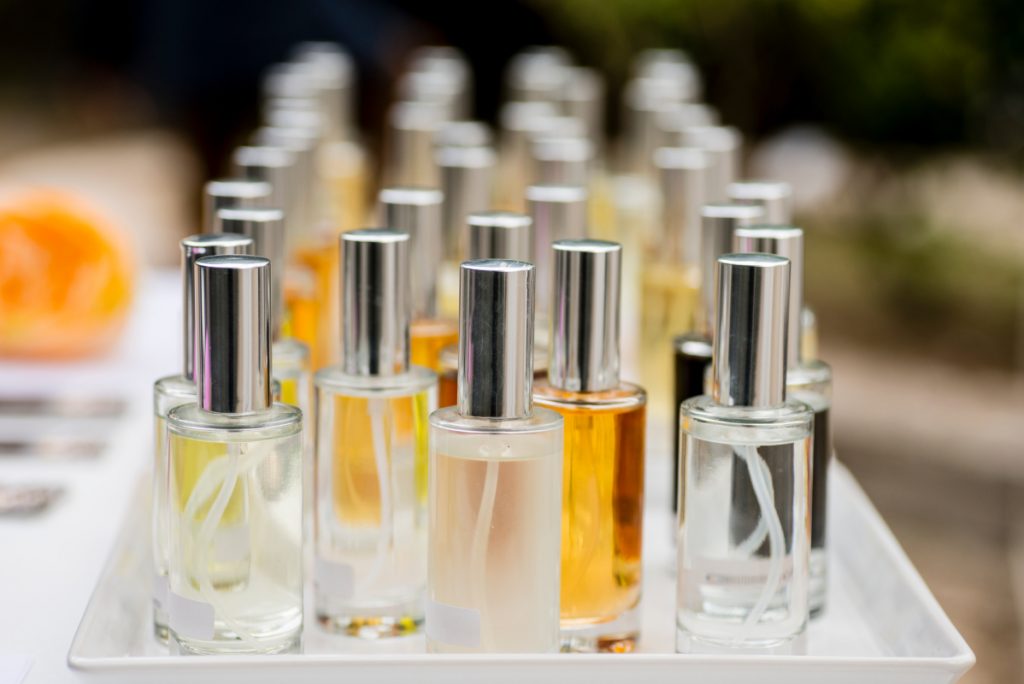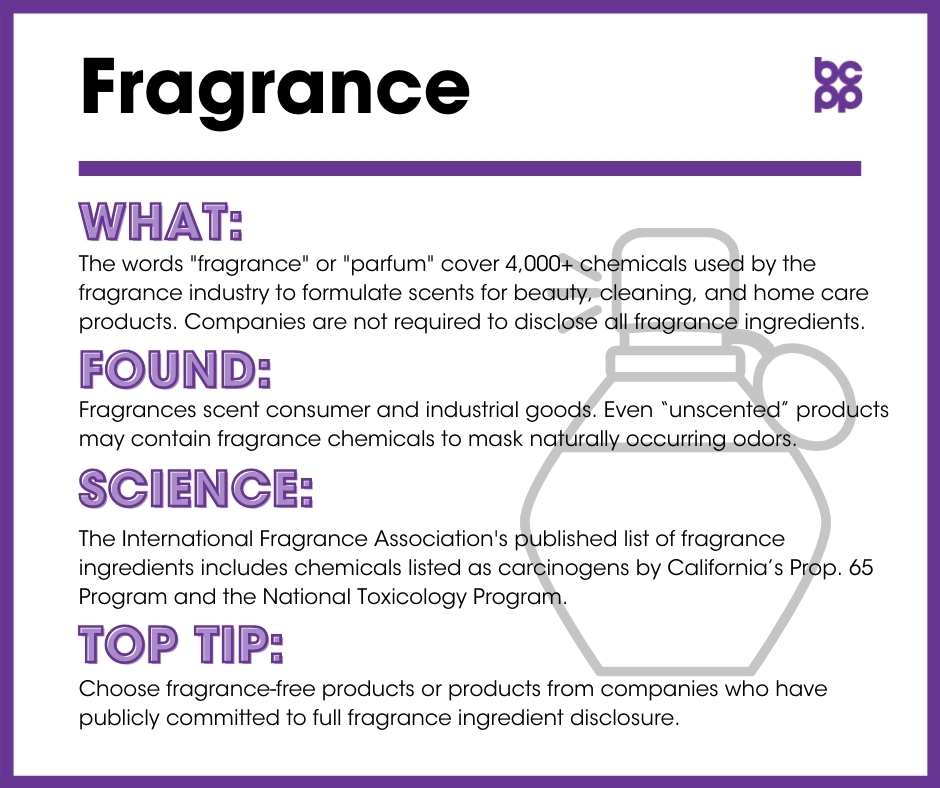One of life’s big mysteries is how it is possible that a Google search for “Does fragrance cause cancer?” gives results that say both “Yes” and “No” to that question.
For example, just looking through the results, Australia’s Cancer Council claims, “There is no evidence associating the use of fragranced products with an increased risk of cancer in humans. Some fragrance ingredients have been shown to cause cancer in laboratory animals, but only at concentrations many times higher than those used in consumer products.”
Yet the International Fragrance Association’s published list of fragrance ingredients includes chemicals listed as carcinogens by California’s Prop. 65 Program and the National (US) Toxicology Program.
What evidence links fragrance to breast cancer?

Breast Cancer Prevention Partners asks, “What evidence links fragrance to breast cancer?” They go on to explain, “IFRA’s 2011 published list of 4,000 possible fragrance ingredients used to formulate fine fragrances, fragranced cosmetics and personal care products includes chemicals listed as carcinogens by California’s Prop. 65 Program and the National Toxicology Program (NTP) such as benzophenone, methyleugenol and styrene. BCPP’s Right to Know report test of 100 personal care products and 40 cleaning products revealed the possible carcinogens beta-myrcene, benzophenone, and DEHP and endocrine disrupting compounds including DEP, oxybenzone, octinoxate and galaxolide.”
And yet Cancer Research UK states, “…deodorants, antiperspirants and body sprays doesn’t cause cancer. Some people have wondered if aluminium in some deodorants and sprays increases cancer risk. There is no good evidence to suggest this. The NHS tells people not to use spray deodorants before a breast screening. This is because they can affect the screening results, not because they are harmful.”
Can Fragrance cause cancer?
But how can Cancer Research UK claim this when the Environmental Working Group confirms that fragrance can cause cancer? “…a committee convened by the National Academy of Sciences confirmed a federal interagency group’s conclusion that styrene, a chemical building block used to produce a wide variety of everyday products, can cause cancer…. Styrene also turns up in automobile exhaust, cigarette smoke and – you might be surprised to know – it might be lurking in the various sprays and liquids you’ll find in the cosmetic and cleaning aisles of your supermarket. That’s because it is an ingredient allowed in fragrances added to a wide variety of consumer products.”
And Breast Cancer UK says, “Chemical constituents of personal care products may be a contributory factor in breast cancer development. Butylphenylmethylpropional (Lilial) is added for purposes of fragrance to a range of cosmetic products, but as it is classed as a group II allergen, it is limited to 2.5% in products intended for skin contact. It has been shown previously to possess oestrogenic activity and exposure to oestrogen is a risk factor for breast cancer.” The charity also advises us to, “Choose fragrance-free or naturally fragranced cleaning products. Fragranced products may contain phthalates such as diethyl phthalate or synthetic musks, such as galaxolide. Some of these are oestrogenic and may increase breast cancer risk.”
Breast Cancer UK is dedicated to the prevention of breast cancer by tackling the environmental and lifestyle causes of the disease. In fact, they are the only UK cancer charity that focuses on all aspects of breast cancer prevention, including diet, lifestyle, and exposure to harmful chemicals found in everyday products and the environment.
What do you conclude from this? Does Fragrance cause cancer?
Maybe this is too simplistic a conclusion, but from our search results, it seems that organisations and cancer charities primarily concerned with preventing the disease say that fragrance or perfume does cause cancer, but those cancer charities more concerned with cancer research, say it doesn’t.
And we’ll leave you with another question: assuming it is the case that exposure to fragrance leads to cancer, does that put you off using it?

